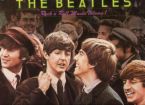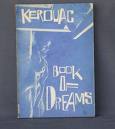Okay, I'll admit that getting me to watch a movie is like pulling teeth. Sitting still for two to three hours is a difficult task for me. I have watched two movies lately, though, that have really entered into my consciousness and have me thinking about the deeper meaning behind the film, and the current of truth behind life, that which binds us together. My favorite kind of movie are the ones that enter your thoughts in this way.
SEABISCUIT
For about two years, I have owned a copy of the movie "Seabiscuit", but I never watched it until a couple of weeks ago, the evening after hiking the Four Cache Loop. It was the story of the jockey, Red Pollard, that I found most intriguing (however, after reading more about his life, I see that the movie was historically inaccurate and simply leads one to believe falsehoods). The idea that this broken down jockey, and trainer down on his luck, also all happen to meet Seabiscuit, a horse ruined by bad training and sold for $8000 to Charles Howard, an automobile enterpreneur with a broken heart, is an amazing example of "kismet" to me. These forces combined in an overwhelming display of mutual healing. The belief and understanding that they all showed in each other combined to make Seabiscuit the greatest racehorse of his era, even beating a much larger and stronger opponent, War Admiral, in the match race Seabiscuit supporters finally obtained.
Overall, it is a movie about redemption, and this is why I love it. I love the idea of redemption. It speaks to my heart about fairness. Eventually, the w hole world can see the good in someone, something that has been broken down, but never gave up trying to be perfect. Finally the heavens open up and illuminate the golden aspects of the subject in a moment of triumph. In this movie, it is the last Santa Anita Handicap, with Pollard back in the saddle after suffering potentially career-ending injuries and Seabiscuit recovered from a torn ligament the following year. They healed themselves together on Howard's ranch, with Pollard joking that they had "four good legs between them", and Seabiscuit ended his career soon after, with the horse that nobody wanted now, in 1940, horse racing's all time highest money winner.
hole world can see the good in someone, something that has been broken down, but never gave up trying to be perfect. Finally the heavens open up and illuminate the golden aspects of the subject in a moment of triumph. In this movie, it is the last Santa Anita Handicap, with Pollard back in the saddle after suffering potentially career-ending injuries and Seabiscuit recovered from a torn ligament the following year. They healed themselves together on Howard's ranch, with Pollard joking that they had "four good legs between them", and Seabiscuit ended his career soon after, with the horse that nobody wanted now, in 1940, horse racing's all time highest money winner.
 hole world can see the good in someone, something that has been broken down, but never gave up trying to be perfect. Finally the heavens open up and illuminate the golden aspects of the subject in a moment of triumph. In this movie, it is the last Santa Anita Handicap, with Pollard back in the saddle after suffering potentially career-ending injuries and Seabiscuit recovered from a torn ligament the following year. They healed themselves together on Howard's ranch, with Pollard joking that they had "four good legs between them", and Seabiscuit ended his career soon after, with the horse that nobody wanted now, in 1940, horse racing's all time highest money winner.
hole world can see the good in someone, something that has been broken down, but never gave up trying to be perfect. Finally the heavens open up and illuminate the golden aspects of the subject in a moment of triumph. In this movie, it is the last Santa Anita Handicap, with Pollard back in the saddle after suffering potentially career-ending injuries and Seabiscuit recovered from a torn ligament the following year. They healed themselves together on Howard's ranch, with Pollard joking that they had "four good legs between them", and Seabiscuit ended his career soon after, with the horse that nobody wanted now, in 1940, horse racing's all time highest money winner.INTO THE WILD
The second notable movie I watched recently is "Into the Wild", of which is the subject of a video I posted below. Eddie Vedder was nominated for several awards for his musical score for this movie, and I think the song in this video is the best song of the soundtrack, and most concisely sums up the concepts embraced by Chris McCandless, the subject of the movie. This is a movie based on a real life story of an extraordinary man who decides to take on the Alaskan wilderness, after finding little about city life, material wealth, and his screwed up family to keep him interested in staying engaged in that reality. After graduating from Emory University with grades "good enough to get into Harvard Law" and a substantial college fund still intact, he instead walks away from all of that and goes "on the road". In many ways, this movie is a road movie, with part of the fun trying to guess where he is now with geographical clues.
The second notable movie I watched recently is "Into the Wild", of which is the subject of a video I posted below. Eddie Vedder was nominated for several awards for his musical score for this movie, and I think the song in this video is the best song of the soundtrack, and most concisely sums up the concepts embraced by Chris McCandless, the subject of the movie. This is a movie based on a real life story of an extraordinary man who decides to take on the Alaskan wilderness, after finding little about city life, material wealth, and his screwed up family to keep him interested in staying engaged in that reality. After graduating from Emory University with grades "good enough to get into Harvard Law" and a substantial college fund still intact, he instead walks away from all of that and goes "on the road". In many ways, this movie is a road movie, with part of the fun trying to guess where he is now with geographical clues.
The truth of McCandless is beset with controversy, especially his last days. In the end, what we want is redemption, but it is not granted here. There is no happy ending, no resolution to his quest, no reconciliation with his family, no triumph over wilderness. There is only the stuff of legend - Bus 142, on the edge of the Denali National Park, where Chris spent his last 189 days, and where people come pay their respects to a man who embraced the ecological vision and love of a simple life of the authors he admired - Thoreau, Tolstoy, and London.
 The movie is breathtaking and incredible, introducing us to complex characters that he meets during his journey, and showing us his struggle to transcend his demons and survive with little more than a bag of rice and a gun in the Alaskan frontier. We see him reading, writing, struggling, hunting, foraging, and experiencing ups and downs. The part I liked best is his open armed embrace of the wilderness - a moment where he stands, arms outstretched, taking it all into his heart. I have felt like that before, I know that feeling of bliss when surrounded by natural beauty. For me, it is also a moment of wonder, thanks, and closeness with My Creator, a feeling of being One with God, but I don't know if McCandless felt that way.
The movie is breathtaking and incredible, introducing us to complex characters that he meets during his journey, and showing us his struggle to transcend his demons and survive with little more than a bag of rice and a gun in the Alaskan frontier. We see him reading, writing, struggling, hunting, foraging, and experiencing ups and downs. The part I liked best is his open armed embrace of the wilderness - a moment where he stands, arms outstretched, taking it all into his heart. I have felt like that before, I know that feeling of bliss when surrounded by natural beauty. For me, it is also a moment of wonder, thanks, and closeness with My Creator, a feeling of being One with God, but I don't know if McCandless felt that way. After reading more about his life later, I find it intriguing that only a quarter of a mile from his "magic bus", where he was finally trapped in a cycle of starvation, was a tram that could have given him safe passage over the river that kept him from heading back to civilization when his luck turned. Safety and survival were only a brief hike further away, a fact that he missed because he apparently had a poor map and was inadequately prepared. Some people condemn him for all he didn't know, and I am not sure what side I agree with the most. I do think that if you are going to take on an experience like that, it is best to be as prepared as possible. He did educate himself beforehand, but then also had too much to learn yet before the true test.
As a parent, I am bothering by his lack of consideration for other people. Characters coming into his life repeatedly ask him to reconcile with his family, or at least let them know he is okay. His parents went through extreme emotional distress when he simply disappeared, without forewarning, explanation, a phone call, nothing. To me, this shows an incomplete transcendence over his past. His healing was not complete, his heart was not love, yet. A letter, a postcard, one simple gesture to acknowledge his family, even though he was still angry at what he considered the falseness of their lives and marriage, would have gone a long way towards easing their deep anguish over losing him. No matter what happens in this life, no matter what roads we take, our parents love us, and the love of family is a truth that supercedes this life.
In the end, perhaps he did overcome this, as suggested in the movie when, in the end, he scrawls out this message in a Tolstoy novel - "Happiness is only real when shared". We find true happiness only in our connection with others, and it is love, only love, that is the true meaning to our existence on earth.
The movie will make you think, and will overwhelm your senses with natural beauty and the desire to seek it, like McCandless did. Live, truly live, by going wild and taking it all the earth has to offer, with the lightest carbon footprint possible. Take it all in, all the natural wonders God has created here on Earth.
But prepare yourself properly first....
And check out the video, listen to the words and see the images. It was an incredible movie.


























No comments:
Post a Comment